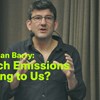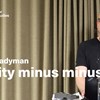cuts
Christian Barry: Which emissions belong to us?
Place:Holländargatan 13, Stockholm, or online.REGISTERAbstractTo address climate change we need to reduce net emissions globally. Most international processes and frameworks have involved seeking to g

Which emissions belong to us?
To address climate change we need to reduce net emissions globally. Most international processes and frameworks have involved seeking to get countries to make cuts to their emissions. Net zero has rec
Children of austerity
Nearly ten years after the first financial chock Waves rippled through the world economy, generating a global recenssion, the track record of high income countries in protecting Children from its worsoch .
Pitfalls in Spatial Modelling of Ethnocentrism
Journal of Artificial Societies and Social Simulation 16 (3) 2 http://jasss.soc.surrey.ac.uk/16/3/2.html Abstract Ethnocentrism refers to the tendency to behave differently towards strangers based only on
Pitcovski’s explanation-based account of harm
Philosophical Studies Abstract In a recent article in this journal, Eli Pitcovski puts forward a novel, explanation-based account of harm. We seek to show that Pitcovski’s account, and his arguments in
Transformative Experience and the Shark Problem
Philosophical Studies Abstract In her ground-breaking and highly influential book Transformative Experience, L.A. Paul makes two claims: (1) one cannot evaluate and compare certain experiential outcomes evaluate and compare certain intuitively horrible outcomes (e.g. being eaten alive by sharks) as bad and worse than certain other outcomes even if one cannot grasp what these intuitively horrible outcomes are like. We argue that the conjunction of these two claims leads to an implausible discontinuity in the evaluability of outcomes. One implication of positing such a discontinuity is that evaluative comparisons of outcomes will not be proportionally sensitive to variation in the underlying features of these outcomes. This puts pressure on Paul to abandon either (1) or (2). But (1) is central to her view and (2) is very hard to deny. We call this the Shark Problem.

Reality minus minus - James Ladyman, Professor of Philosophy
There is plenty of techno-optimistic takes on virtual worlds. They will offer us opportunity for new and exciting experiences, as real as reality, it is said. But what about the costs? In a talk from
Collective responsibility. Perspectives on political philosophy from social ontology
Editor with Bill Wringe. Published by Springer Nature. This book provides a comprehensive overview of the ways in which the concept of collective responsibility is relevant to ongoing normative debates
Completed: Agenta
Ageing Europe: An application of National Transfer Accounts (NTA) for explaining and projecting trends in public finances (AGENTA). The AGENTA project aims at explaining the past and forecasting the fu
Myths and truths about "the experiment"
The Swedish response to Covid-19 put in context.








